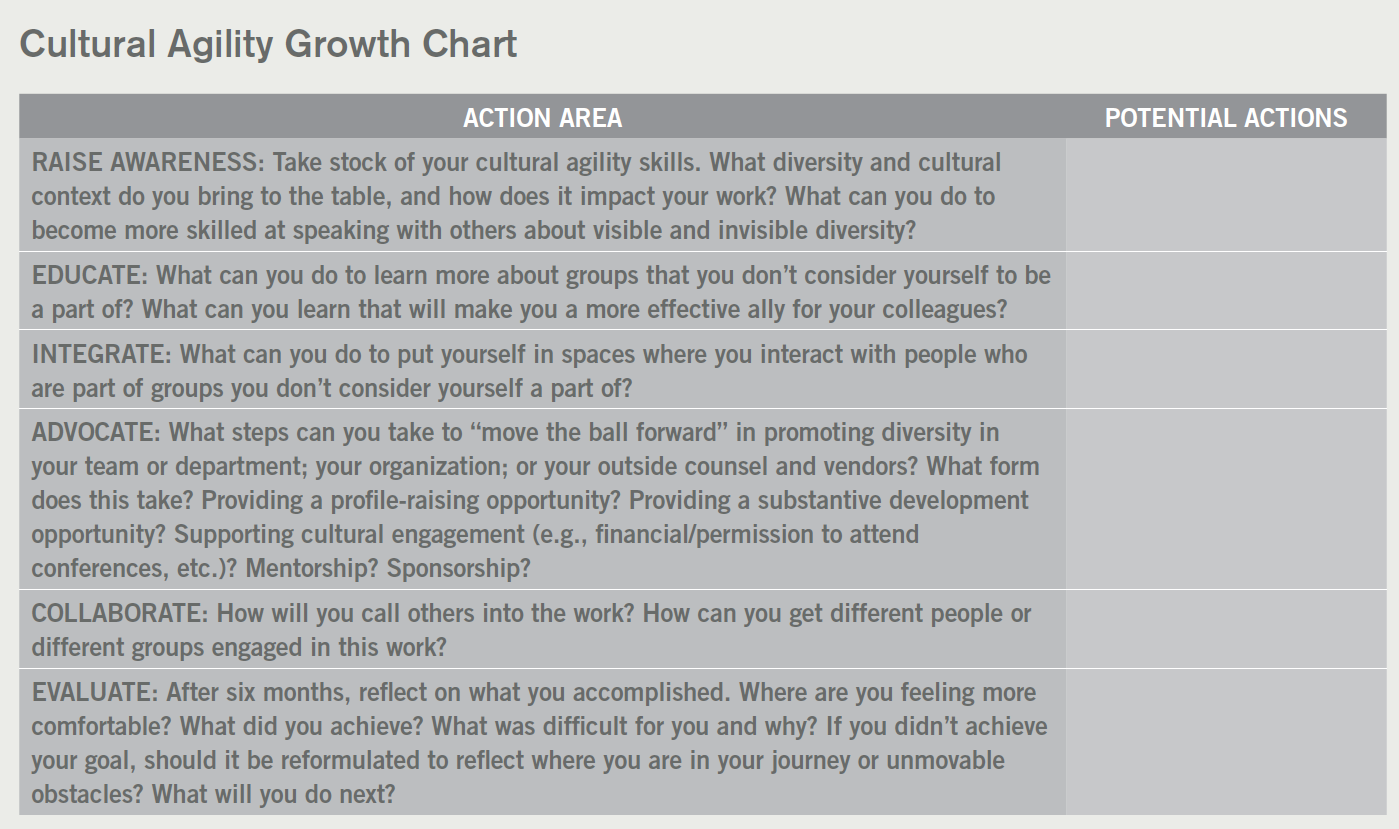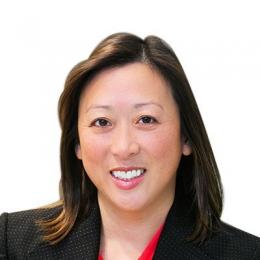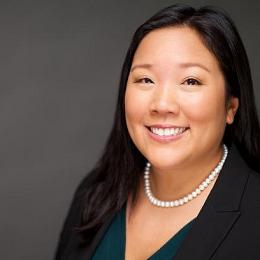
CHEAT SHEET
- With power, comes responsibility. Corporate counsel have as much power and responsibility as their partner law firms to contribute to the retention and advancement of diverse talent.
- Mentorship programs. Collaboration between corporate clients and law firms in the form of mentorship programs can be a useful vehicle for increasing diversity, encouraging both sides to have a vested and personal interest in program mentees and their success.
- Three-part strategy. Fostering relationship building between inside and outside counsel and offering opportunities for leadership and visibility are key to helping diverse talent advance.
- Recruitment. Programs that promote the advancement and retention of diverse talent can also serve as a recruitment tool for attracting diverse hires.
As a rule, we know that clients with their spending power wield considerable influence over their outside counsel counterparts. But are clients doing enough with their power to help address this pipeline problem in their outside counsel firms?
The law department at Discover Financial Services challenged itself to turn this ongoing dialogue into action. One of the ideas that came out of that challenge was Discover’s pilot Diversity Mentoring Program.
The well-known problem
It is well known that even well intentioned, “best in class” firms with a recognized commitment to diversity may fall short in the effort to retain and advance diverse talent. From a client perspective, this ongoing dilemma means that even forward-thinking firms with an eye on diversity may not have a sufficient pipeline of diverse talent.
According to a 2018 law firm diversity survey of 200 firms by Vault and Minority Corporate Counsel Association, minority lawyers made up only 16.84 percent of the overall attorney population. Women comprised 35.7 percent of the overall population. The percentage of equity partners at surveyed firms who were ethnically or racially diverse was 8.82 percent, while the corresponding statistic for women was 20.64 percent.
According to the report, the landscape was bleaker for LGBTQ attorneys, representing 2.77 percent of the overall attorney population and attorneys with disabilities representing .44 percent of the total attorney population at surveyed firms. The report summarizes: “Even with the gains recorded over the last decade, especially among new associates, demographic changes have been slow to trickle upward, as law firm partners remain overwhelmingly white and male.”
The consequence is that clients lose out on the benefit of diverse thought at higher levels. But the question arises whether clients are just as well positioned as law firm leadership to contribute to the retention and advancement of diverse talent.
A founding member of the General Counsel’s Thought Leader Experiment, which galvanizes the collective power of companies to shape the direction of the legal industry, Wanji Walcott, EVP, CLO and GC at Discover Financial Services, noted: “Discover views a diverse workplace as being essential to our success. As corporate clients, we have the power and therefore the responsibility to drive positive change within the legal profession. Collectively, we can leverage our influence as clients to drive meaningful progress in the area of diversity and inclusion while collaborating with outside counsel who share our commitment to these important values.”
Discover’s commitment to diversity and inclusion
Discover has an established goal of supporting the retention and advancement of diverse talent in its outside law firms. Co-chaired by Kareem Dale, director and senior counsel, and Raina Jones, director and senior counsel, the goal of the Law Diversity and Inclusion Committee is to develop and implement effective diversity initiatives. Some of the ways in which the committee achieves its goal is by staffing diverse attorneys and minority- and/or women-owned law firms on Discover legal matters, supporting the company’s use of diverse suppliers, and increasing diversity awareness in the company.
As a client, all of these initiatives support the goal of advancing the retention and development of diverse talent diversity in our outside counsel firms. But the Discover team also recognized that outside counsel, diverse or otherwise, advance within law firms where they are able to develop and sustain meaningful client relationships. That aspect of relationship-building is an area where Discover and other corporate clients are empowered to take a more proactive role in opening the door wider to those relationships.
With that rationale, Discover’s law department partnered with four of its core litigation firms and asked them to put forward two diverse mentees per firm, representing some of their top diverse talent. One of the chosen mentees was to have some prior Discover experience, i.e., to be previously identified in Discover’s diverse talent pipeline, and the second mentee was to have no prior connection to Discover and no required experience in financial services.
Developing your Individual Diversity Action Plan: It’s your path to greater cultural agility
The Discover legal department’s partnership with its outside law firms to develop and retain diverse talent is a great example of how in-house counsel and outside counsel can tackle issues together rather than blame each other for the lack of diversity in the legal industry. However, members of the legal community don’t have to wait for organizational leadership and mandates.
We each have individual agency to create a more diverse and inclusive legal community. The question we often ask ourselves is “How?” We believe an individual can become an effective actor by focusing on the core competency of cultural agility.
A culturally agile work environment is one where:
- Individuals can be their authentic selves in the workplace and add their voices and perspectives to the business dialogue.
- Leaders and managers effectively engage diverse cultural perspectives in decision-making and in overall contributions to company success.
- There is fair and even access to resources, growth and development opportunities, and sponsorship among employees regardless of their affinity group(s) and backgrounds.
- There is effective elimination of exclusionary behaviors and bias mitigation.
Cultural agility has been defined as the attitudes, skills, and knowledge necessary to provide effective leadership in an ever-changing global economy. Leaders must understand their own culture and how it shapes their experience, understand and appreciate cultural differences with others, and incorporate this knowledge into their interactions and decision-making. Leaders who can operate with broad perspective and cultural agility will benefit all members of an organization. Simply put, inclusive leaders have a broader ability to mobilize team members, peers, and other stakeholders toward common goals. In an era of globalization, heterogeneity, and #MeToo (and other cultural “aha” moments), cultural agility and inclusion are essential workplace competencies.
Inclusion is not a mindset. It is a series of intentional and consistent actions and practices. And everyone has room to add to their skills in this space. One may be a minority in one respect (and therefore be a person of intrinsic cultural competence) and still not have skills to navigate in other diverse communities.
Adopting the framework of cultural agility as a core competency is actionable. An Individual Diversity Action Plan can be used as a roadmap for taking personal action to develop one’s cultural agility. This crucial skill is the backbone for sustainable institutional and individual success going forward.
We encourage you to take the opportunity to brainstorm actions you might take in each of the boxes. Later you will create your personal action plan. Have fun with the idea generation stage.
Testing concepts
Before launching the program more broadly, Discover’s law department wanted to test certain concepts through the pilot program, including whether to look beyond associates connected with specific practice areas of interest to Discover. Discover wanted to challenge firms to put forward diverse talent it had never seen and to test the effectiveness of mentoring associates outside of financial services.
But while mentoring and relationship-building for diverse outside counsel talent is a noble goal, the question arose whether the program would be meaningful if there was not an opportunity to send work to a program participant.
“We in no way wanted to set expectations with the program participants and their law firms that the opportunity to do Discover work was a given,” said Sherri Nagel, head of litigation. “However, because the litigation team has ample opportunity to engage with outside counsel, we thought conducting a pilot program within our group would allow us to test some of these concepts and seek out opportunities for diverse associates to get on our radar screen. Could we still provide value as mentors in the absence of working on a case together? Could the mentoring program make a difference in an associate’s development and advancement even if they were not litigators? Was the program more effective for associates at certain levels? Could we develop meaningful relationships remotely? We were interested in exploring all of these questions.”
The program framework
In building out the framework of the program, the Discover litigation team settled on three career drivers that they wanted to promote as mentors and which they felt were key to success within a law firm: (1) relationship-building; (2) leadership; and (3) visibility.
The Discover team agreed that as young associates in law firms, individuals tended to focus primarily on doing good work and billing the right number of hours. However, the Discover attorneys wanted to share the value of relationships in particular, to help associates think about how they can demonstrate leadership on their cases and within their law firms generally, regardless of their role or level. As in-house counsel, the team also recognized that just by virtue of this program, Discover was helping diverse talent be more visible within their law firms and wanted to help these associates think about how to promote and sustain that visibility.
To determine the qualities for which they would mentor, the Discover litigation team discussed what they collectively valued most in outside counsel. The program framework came together as the Discover team converged sought-after attorney soft skills with those traits on which Discover attorneys themselves are measured in their in-house roles. These soft skills included, among others, qualities such as “empathetic listening,” “anticipatory thinking,” “effective communication (including client pushback),” and “investment in relationships.”
“By tying the traits we desire in our outside counsel with the traits that are valued in-house at Discover, we accomplished two purposes,” explained Karen Gossman, director and senior counsel and program mentor. “We were able to define specifically those traits in outside counsel beyond expertise that are vital to a strong and successful relationship, and mentor for those qualities while at the same time bringing our outside counsel partners closer to the core values of Discover’s legal team.”

Sharing the in-house perspective
The mentors and mentees convened on the Discover campus for the kick-off of the six-month pilot program. In addition to individual mentoring sessions that outlined short- and long-term career goals and aspirations for the program, the daylong event included an overview of the program’s objectives and framework, sharing information about Discover’s business model and litigation portfolio, as well as team-building exercises, not only to build rapport between the respective mentors and mentees, but also to promote a collaborative group dynamic among the mentees themselves.
A favorite session of the day was a panel of the Discover litigators, which gave the participating associates the opportunity to ask anything they liked of in-house counsel. The Discover litigators shared particular “pet peeves” for outside counsel, why they routinely called back favorite counsel, and why others do not get that second call. The group also collaborated on those qualities that make an “ideal” outside counsel. The group’s discussion expanded beyond doing good work and being responsive to client needs.
“Responsiveness and expertise are the price of admission for outside counsel,” commented Simon Auerbach, director and senior counsel and program mentor, “and there are a lot of outside counsel with these qualities. We therefore see other skills serving as differentiators where our outside counsel helps to problem-solve and drive solutions. That is a major value add. It sounds simplistic, but the focus is often on identifying the obstacles without offering functional solutions. We also value our counsel’s ability to anticipate risk and to focus on the big picture beyond a single case. Bringing these skills to the table resonates with us and helps foster long-term partnerships.”
Partner Abe Colman of participating law firm Reed Smith further observed: “It is one thing to be assigned a matter to work on. It is a completely different thing to have an attorney from the inhouse legal department assigned to be your mentor. As a supervisor of associates in the firm, I can stress all day long what it takes to make a client happy. It is completely different when an associate hears that directly from the client. This kind of contact and mentoring from the in-house legal department teaches the associates how to develop a client relationship and how to enhance and sustain an existing relationship.”
“This kind of contact and mentoring from the in-house legal department teaches the associates how to develop a client relationship and how to enhance and sustain an existing relationship.”
Abe Colman, Partner, Reed Smith
Following the initial meeting, the mentors connected one-on-one at least monthly with the program associates to discuss short- and long-term career goals. Participating associate Tanya Taylor, from Ballard Spahr in Los Angeles, CA, observed: “The six-month program allowed me to think more critically about my career trajectory. The program afforded me the opportunity to formulate specific, quantitative plans to achieve my goals. The regular discussions with my mentor helped to hold me accountable to the goals I had set for myself and served as a check-in on my long-term career goals.”
The program culminated with a final in-person meeting on Discover’s campus that also included the respective firms’ relationship partners. Aside from client, associate, and partner collaboration on various topics and hearing from representatives of Discover’s various affinity groups, the Discover mentors again sat on a panel to give the associates direct feedback, this time covering positive approaches toward business development.
“We wanted them to think long-term,” said Lisa Ellis, director and senior counsel and program mentor. “So many outside counsel, even senior lawyers trying to get business, are focused on whether they will get an immediate call to handle the next case. The far better approach from our group’s perspective is to focus on building a long-term relationship. Those who are willing to invest in that long-term approach are more likely to be rewarded in the end with sustained business.”
Another major component of the final day was a mock client presentation. The Discover litigators tasked the mentees in groups to deliver a strategy recommendation based on an actual Discover case. The associates then engaged in a mock client discussion to define goals and determine a path forward. The Discover litigation team provided feedback following the presentations.
Dan McKenna of participating firm Ballard Spahr elaborated: “Practical litigation requires a variety of ideas and opinions, which can only come from teams with differing experiences and perspectives. Diversifying client teams is therefore hugely important. But building diverse teams is only a small part of the process. Everyone has to have an opportunity to find their perspective through experience. Discover’s Diversity Mentoring Program was a high-touch, hands-on experience unlike any other. It gave junior associates a very early opportunity for real access to clients and opportunities to grow through a variety of real-life experiences. The associates who participated came back more confident in themselves and their positions and ready to engage at a new client level.”
Diversity Action Plan
Next, you need to figure out your action plan. Our strong suggestion is to focus on two action items at a time. Make specific goals. Decide when you will take actions toward those goals. Block time on your calendar to do your work. For instance, you could commit to listening to two podcasts a month that would give you greater insight into another community, and put podcast listening on your calendar. We suggest you create an action plan for a specific period of time (e.g., six months). You can always revise the plan or pick two new goals after that.
The action plan below helps you focus on how you will meet your commitments.
What are two things you commit to doing?
When will you do those two things?
What might get in your way of achieving the goal(s)?
What changes will you make to overcome the challenges and/or reach the goal(s)?
What support do you need to make those changes (from buddy/otherwise)?
Finally, studies show that individuals are much more likely to be successful in meeting personal goals when they publicly share the commitment and have an accountability mechanism. The easiest way to create accountability is to name an accountability buddy. The person doesn’t have to be an expert in the areas where you seek growth. All you need from them is a commitment to check in on you to make sure you are meeting your personal timetable to achieve your goals.
We challenge you to name an accountability buddy. Email your action plan to that person. Ask them to support you by having them check in with you periodically (at least monthly) to see how you are doing on your personal plan.
Finally, take the time to reflect after you complete an action plan. Where are you feeling more comfortable? What did you achieve? What was difficult for you and why? If you didn’t achieve your goal, should it be reformulated to reflect where you are in your journey or unmovable obstacles? What will you do next?
This is an ongoing process, but the paths to do the work are almost infinite. You can develop your cultural agility skills by reading, listening to podcasts, volunteering, joining other voluntary bar associations, or raising your hand to support diversity and inclusion work within your organization. It can be a great way to make meaningful connections with others with whom you might not normally form bonds. And that too is cultural agility.
Measuring success
The Discover mentors recognize that whether or not the participating associates in the program remain and advance within their firms will not be immediately measurable. Nevertheless, the Discover mentors did receive feedback of immediate and direct benefits from their personal investment.
Expansion of diverse talent pipeline
All of Discover’s mentees had at least one opportunity to work directly with a Discover litigator on a live matter over the course of the six-month program. These cases gave the Discover litigators opportunities to give feedback in real time about how they like to work with outside counsel. While not all the mentees worked in the area of consumer finance litigation when they started the program, an added benefit was tapping into the talents of diverse associates who took an interest in Discover once given the opportunity.
“The program allowed law firm associates who had never considered representing financial institutions a chance to join our client team after getting to know us and the work we do,” said Dave Meehan, director and senior counsel and program mentor. “This success reinforces the importance of clients looking proactively at a firm’s diverse bench and seeking opportunities for engagement, particularly with younger attorneys who may not yet have settled on a practice area.”
Ballard Spahr associate Sadé Calin, who is based in Cherry Hill, NJ, agreed: “The program gave me an opportunity to build relationships and move into a completely new practice area that I would not otherwise have thought to explore. I’m excited to continue an ongoing working relationship with Discover and be part of their client team going forward.”
“Practical litigation requires a variety of ideas and opinions, which can only come from teams with differing experiences and perspectives. Diversifying client teams is therefore hugely important.”
Dan Mckenna, Ballard Spahr
Promoting visibility of diverse talent
One aspiration of the Discover program was to heighten visibility of top diverse talent at the participating law firms. Discover litigators routinely ask for diverse teams to work on their matters, but the program encouraged a vested and personal interest in the program mentees.
“Participation in this program definitely raised my profile within my law firm,” observed participating associate James Roberts from Burr & Forman based in Birmingham, AL. “Although I practice in the area of creditors’ rights and bankruptcy and am not in the regular pipeline to work on Discover litigation matters, this program was on the radar screen for firm leadership, and my participation in it sparked interest of other partners in my work. I’ve since had business development opportunities with senior partners at my firm that emerged from conversations about Discover’s Mentoring Program. As for the work that I do, I am more empowered to interact with clients based on the benefit of the in-house perspective I received from the program. To me, this program was unique in not only diversifying the pipeline but also building expertise at the same time, which makes me more valuable to my firm and our clients.”
Support of firms’ recruiting initiatives
Another unanticipated benefit of the program was the possibility for firms to use it proactively in recruiting diverse talent. Partner David Elliott from Burr & Forman observed: “Discover’s mentoring program provides us with another important component to attract, retain, and train diverse lawyers. When our participants tell other diverse lawyers in our firm about the program, as well as diverse candidates we’re trying to attract to our firm, it helps illustrate our commitment to diversity and the success of our diverse lawyers.”
The continuous focus on diverse staffing for Discover matters further drives firms’ recruiting initiatives and strategy. Husch Blackwell partner Jennifer Ziegenhorn noted: “The client’s influence over the firm’s focus on diversity is extremely helpful in understanding its importance and moving past easy staffing to one that makes sense to build the long-term relationship for Discover. Just asking the question of whether there is also a diverse attorney that could work on a matter raises the profile of young talented attorneys. It also creates a focus in recruiting, knowing we need to look toward a long-term growth plan to meet our client’s needs.”
Outside counsel collaboration and networking
Despite being from firms that routinely compete for Discover’s business, firm participants agreed that the mentoring program set a collaborative tone and provided a solid base for relationship-building. It also created touch points for the various firms that regularly work on Discover litigation matters, fostering a greater sense of team for the benefit of Discover.
Participating associate Miya Moore, from Burr & Forman based in Birmingham, AL, agreed. “It was empowering to be in a room with so much diversity, and where diversity was so highly valued. Based on this experience, I have an expanded network of diverse peers across law firms, geographies, and practice areas. What I also found interesting was that the program encouraged us all to connect at a personal level, regardless of our respective diverse backgrounds, and that was true both at the peer level and also with our Discover mentors.”
Highlighting Discover’s commitment to diversity
Discover also received feedback from the participating firms that the reputation of the program heightened its reputation as a desirable client. Where Discover wishes to have top talent working on its matters, Discover hopes to attract a competitive associate pool where top associates are in high demand across practice groups.
Participating associate Brandon White, from Reed Smith in Miami, FL, noted: “It is no secret that personal relationships drive our profession and, ultimately, our success. I found it extremely valuable to interact up-close-and-personal with the lawyers of Discover via the Diversity Mentoring Program, and learn more about what success looks like from an inhouse perspective. With each roundtable and presentation, I could feel the investment that Discover was making into the success of young, diverse lawyers like me. The rush of that feeling sparked my motivation to work more with Discover because I now understand fully that it’s not all about business to them — it is also about investing and building.”
Next steps
The program participants reunited on Discover’s campus in the fall where they participated in Discover’s biannual Attorney Summit where they again had the chance to present and network with Discover attorneys and other law firms. Discover continues to deepen relationships with the 2019 mentorship class while mentoring a new class of associates in 2020.
From a metrics perspective, Discover recognizes that its ability to measure the impact of its program will take time. In reality, Discover may still be two to three years away from collecting initial data based on associates’ levels and the length of partnership tracks at their respective firms. Discover intends to track the duration of its mentees’ careers at their respective firms, the number of mentees who achieve partnership status, the extent to which participating associates expand Discover’s diverse talent pipeline for outside counsel working on its matters, and, through individual surveys, the extent to which mentees believe the program contributed to their success in their legal careers.







